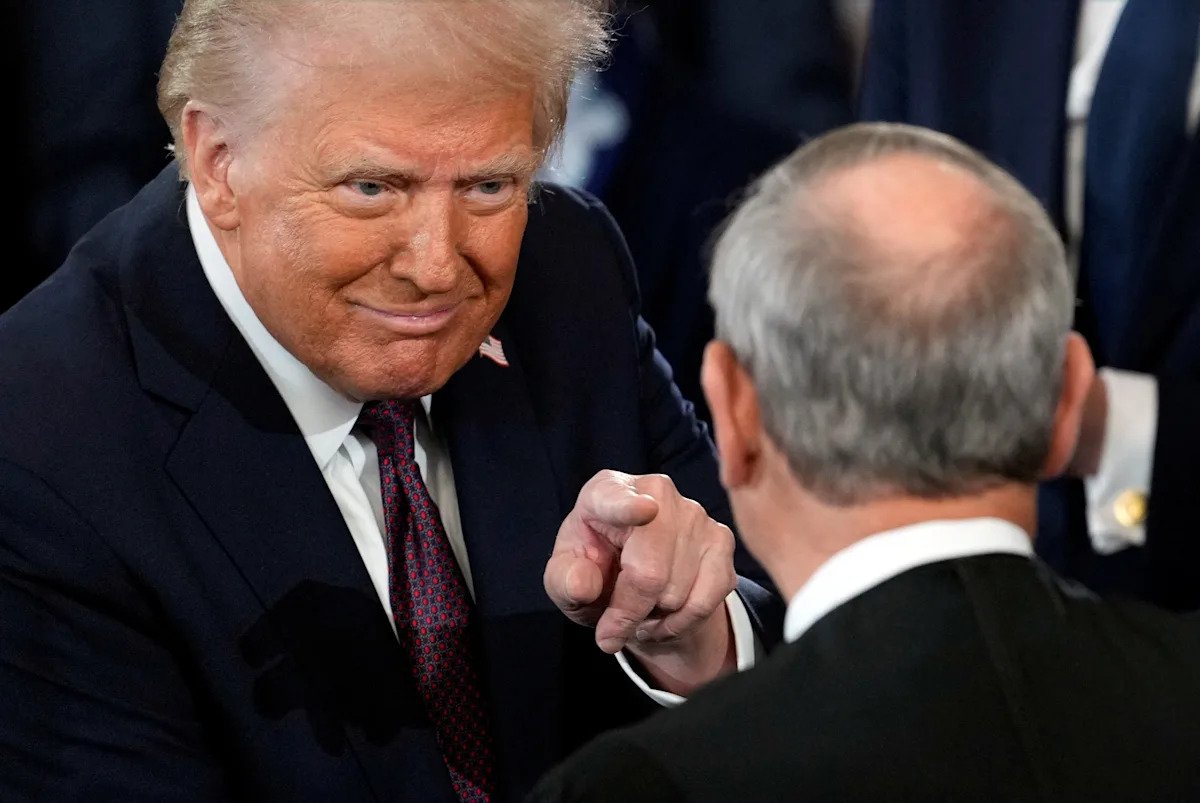Breaking News
Chief Justice John Roberts is wary of entering political fray, his top adviser says

MEMPHIS, Tennessee — When Chief Justice John Roberts released his annual year-end message last December, he lamented increasing threats against the judiciary and urged respect for court orders.
Some observers saw the message as a veiled response to President Donald Trump’s electoral victory less than two months earlier — or a warning about what Trump’s second term might hold.
But Roberts’ top aide said Wednesday that the chief justice’s New Year’s Eve missive was not prompted by the election.
Robert Dow, a federal judge who serves as counselor to Roberts, told a judicial conference here that the chief justice was instead reacting to a long-term trend of eroding esteem for the judiciary.
“We started work on that in about September, and there was a full draft of it before the election, and it was finished up between the administrations,” Dow told the 6th Circuit Judicial Conference. “It was the culmination of a lot of things that had been brewing. … It was a message for that moment and it’s really a message for the general times.”
Dow pointed to other periods in American history when the judiciary loomed large in political debate and sometimes encountered threats of violence over unpopular rulings. “This isn’t the first time that we’ve had to navigate times similar to the times we’re in now. It doesn’t make it any less scary for all of us who have to navigate that.”
Roberts “is very aware of these threats,” Dow said.
But he also suggested the chief justice is wary about being pulled into political struggles where the judiciary is at a significant disadvantage compared to the White House and Congress.
“The problem for our branch is that we have a very tiny megaphone, and if we use our megaphone too often, we risk losing what I would say is the long game, and the long game is to preserve our independence,” said Dow, who was appointed to the federal bench by President George W. Bush in 2007.
Dow did not mention explicitly that Roberts has sometimes spoken out on behalf of judges who have faced verbal assaults from Trump, other administration officials or other political figures. The most recent riposte from the chief justice came in March, after Trump called for the impeachment of the chief judge of the U.S. District Court in Washington, James Boasberg, over a ruling he issued against one of Trump’s signature deportation policies.
“For more than two centuries, it has been established that impeachment is not an appropriate response to disagreement concerning a judicial decision. The normal appellate review process exists for that purpose,” Roberts said in a terse written statement released by the high court.
In a similar episode in 2018, Roberts clapped back at Trump for describing some judges who’d ruled against the administration as political partisans. “We do not have Obama judges or Trump judges, Bush judges or Clinton judges,” Roberts said in a statement. “What we have is an extraordinary group of dedicated judges doing their level best to do equal right to those appearing before them.”
Roberts also took on criticism from a prominent Democrat in recent years, rebuking Senate Minority Leader Chuck Schumer for declaring that Justices Neil Gorsuch and Brett Kavanaugh would “reap the whirlwind” if they cast votes against abortion rights. “Threatening statements of this sort from the highest levels of government are not only inappropriate, they are dangerous,” the chief justice said in 2020. (Schumer walked back his statement. Trump hasn’t.)
During the discussion Wednesday, federal judges in attendance were shown an alarming series of photos depicting shooting incidents, vandalism and arson at various federal courthouses in recent years. Dow also pointed to a surge in verbal threats against federal judges as well as a troubling number of physical attacks on judges and their family members.
The judges also heard that some lawmakers have introduced legislation to shift control of the Marshals Service, historically part of the Justice Department, to the judiciary.
While Dow discouraged any attempt to square off with the political branches for public attention, he did say the detached, sometimes secretive approach of some in the federal judiciary may not be well-suited to the current era where judicial rulings often become footballs in the political arena.
“This may be a wake up call for all of us to rededicate ourselves to get out there in the world and not be isolated judges, and make sure that people understand what we do, why it’s important, and the value over the long term for our country that we continue to have a strong, robust, independent judiciary that’s free from violence and intimidation and whose rulings are respected,” Dow said.
